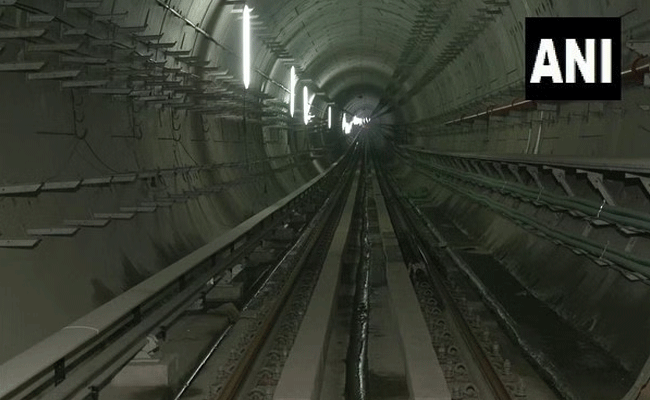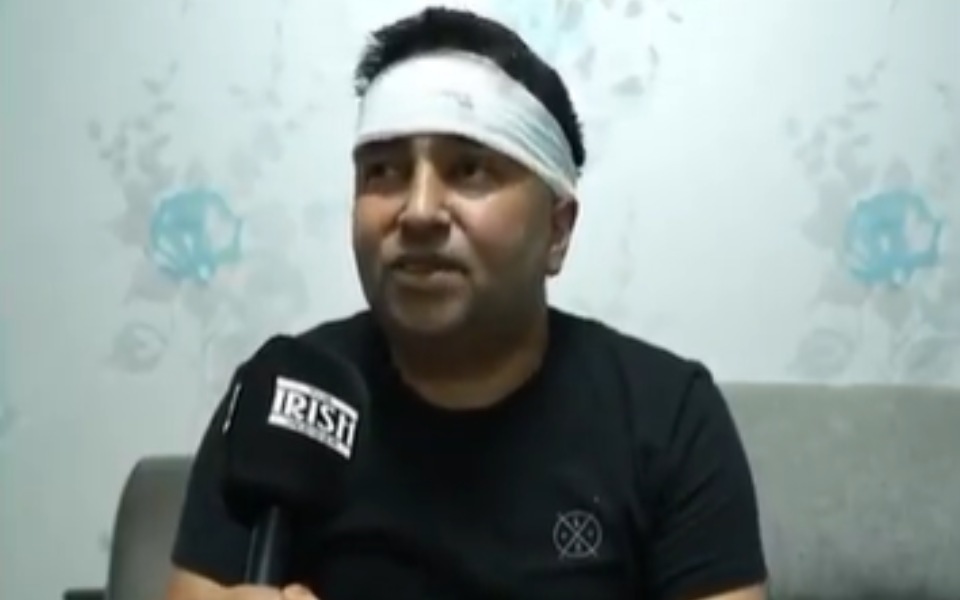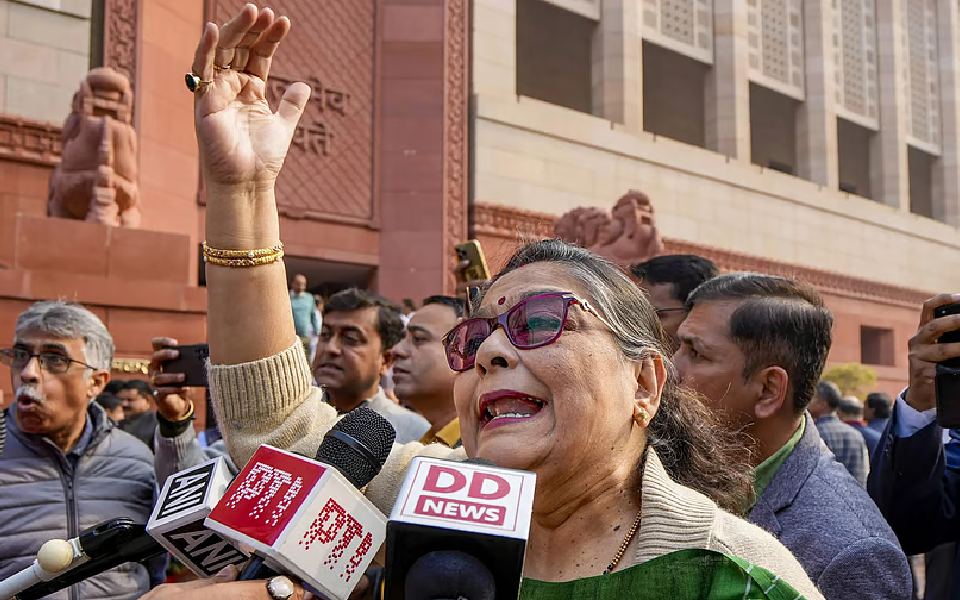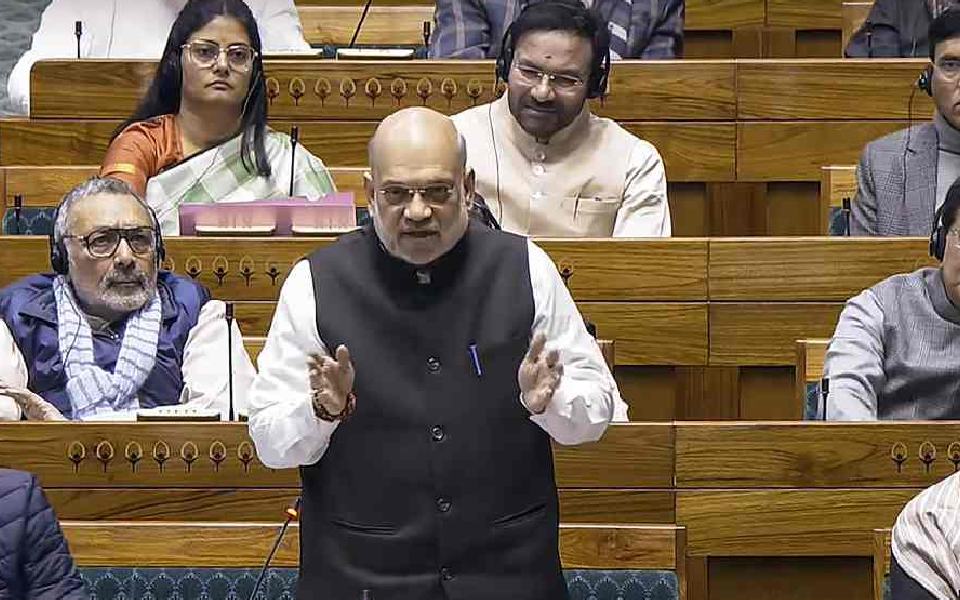Howrah/Kolkata (PTI): India's first underwater tunnel, being built under the Hooghly River in West Bengal at a cost of around Rs 120 crore as part of the East West Metro Corridor, will be a blink-and-you-miss-it experience for passengers as trains will cross the 520-metre stretch in just 45 seconds.
The tunnel -- the Indian version of Eurostar's London-Paris corridor -- is 13 metre below the riverbed and 33 metre below ground level.
The 520-metre tunnel is part of the East West Metro Corridor of Kolkata -- from the IT hub of Salt Lake Sector V in the east to Howrah Maidan in the west across the river.
The tunnel's construction is complete and is likely to be commissioned in December 2023 after the completion of a 2.5-km stretch between Esplanade and Sealdah on the corridor.
"The tunnel is essential for the East West Corridor and it was key. The under-the-river-alignment was the only alignment possible with residential areas and other technical issues involved," said Kolkata Metro Rail Corporation General Manager (Civil) Sailesh Kumar.
"This metro route between Howrah and Sealdah cuts down the commute time to 40 minutes as against 1.5 hours by road. It will also ease congestion at both ends," he said.
It will take 45 seconds to cross the tunnel, he said.
The East West Corridor of the metro rail has been marred by delays and resultant cost escalations. It was approved in 2009 at a cost of Rs 4,875 crore and a completion date of August 2015. According to officials, the cost has now increased to Rs 8,475 crore out of which Rs 8,383 crore has already been spent.
The tunnel will have an internal diameter of 5.55 metre and an external diameter of 6.1 metre. The spacing between the up and down tunnels will be 16.1 metre centre-to-centre.
The inner walls of the tunnel are being made with high quality M50 grade, reinforced concrete segments with a thickness of 275mm each. Six of these segments will complete a circular lining of the tunnel's diameter. The segments are being pre-cast in specialised moulds imported from Korea.
Several protective measures have been taken to prevent water inflow and leakages in the tunnel. Concrete mixes composed of fly ash and micro silica have been used for the segments to minimise water permeability.
The segments are being sealed using a complex grouting process that will fill the space between the segments and the shield of the tunnel boring machine (TBM).
A two-component grout mix, including a slurry made of water, cement and bentonite and sodium silicate, is being used to fill the gaps. The liner segments are fitted with German-made neoprene and hydrophilic auxiliary gaskets, which expand when in contact with water to prevent inflow through segmental joints.
Two German-made tunnel boring machines (TBMs), named Prerna and Rachna, were deployed for the process.
Emergency evacuation shafts up to 760 metre in length are being provided inside the tunnel in accordance with the National Fire Protection Association (NFPA) guidelines. The evacuation shafts are being provided in Howrah Station in the west and Strand Road in the east for passenger safety.
Let the Truth be known. If you read VB and like VB, please be a VB Supporter and Help us deliver the Truth to one and all.
London, Aug 5 (PTI): An Indian-origin taxi driver based in Ireland for over 23 years has become the latest to be targeted in an unprovoked attack in the capital Dublin, with local police (Gardai) launching an investigation into the violent assault.
Lakhvir Singh, in his 40s, told local media that he picked up two young men in their 20s on Friday night and dropped them at Poppintree, in the Ballymun suburb of Dublin.
Upon arriving at the destination, the men are said to have opened the vehicle door and struck him twice on the head with a bottle. As the suspects fled, they reportedly shouted: "Go back to your own country".
"In 10 years I've never seen anything like this happen," Singh told ‘Dublin Live’.
"I'm really scared now and I'm off the road at the moment. It will be very hard to go back. My children are really scared," he said.
A Dublin police spokesperson said Singh was taken to the city's Beaumont Hospital with injuries determined as not life-threatening.
"Gardaí are investigating an assault reported to have occurred in Poppintree, Ballymun, Dublin 11 at approximately 11:45 pm on Friday, 1st August 2025. A man, aged in his 40s, was brought to Beaumont Hospital for treatment of non-life-threatening injury. Investigations are ongoing," the spokesperson said.
The incident followed an Indian Embassy advisory, also issued on Friday, expressing safety concerns following recent attacks in and around the capital Dublin and urging Indian citizens to take safety precautions.
"There has been an increase in the instances of physical attacks reported against Indian citizens in Ireland recently,” states the advisory.
“The embassy is in touch with the authorities concerned in Ireland in this regard. At the same time, all Indian citizens in Ireland are advised to take reasonable precautions for their personal security and avoid deserted areas, especially at odd hours," the statement reads, adding emergency embassy contact details as 0899423734 and cons.dublin@mea.gov.in.
It came in the wake of a brutal attack on a 40-year-old Indian man at Parkhill Road in the Tallaght suburb of Dublin on July 19, described as “mindless, racist violence” by locals.
The Gardai had opened an investigation into the case and Indian Ambassador to Ireland Akhilesh Mishra was among those who took to social media to express shock over the attack.
“Regarding the recent incident of physical attack on an Indian national that happened in Tallaght, Dublin, the embassy is in touch with the victim and his family. All the requisite assistance is being offered. The embassy is also in touch with the relevant Irish authorities in this regard,” the embassy said in a social media post days after the incident.
A Stand Against Racism protest was also held by the local community in condemnation of what was described as a "vicious racist attack" and to express solidarity with migrants.
Last week, Dr Santosh Yadav took to LinkedIn to post details of a “brutal, unprovoked racist attack”.
The entrepreneur and AI expert stressed that it was not an isolated incident and called for “concrete measures” from the governments of Ireland and India to ensure Indians feel safe to walk the streets of Dublin.
His post revealed that a group of six teenagers attacked him from behind as he walked to his apartment in Dublin.
“This is not an isolated incident. Racist attacks on Indian men and other minorities are surging across Dublin — on buses, in housing estates, and on public streets. Yet, the government is silent. There is no action being taken against these perpetrators. They run free and are emboldened to attack again,” reads Yadav's post.
Fine Gael party Councillor for Tallaght South, Baby Pereppadan, was among those who expressed concern following last month’s attack.
“People need to understand that many Indian people moving to Ireland are here on work permits, to study and work in the healthcare sector or in IT and so on, providing critical skills,” he said.
Another violent anti-Indian attack in Ireland
— Journalist V (@OnTheNewsBeat) August 5, 2025
Taxi driver Lakhvir Singh was attacked with glass bottles while doing his job pic.twitter.com/mtkwhLWISx





